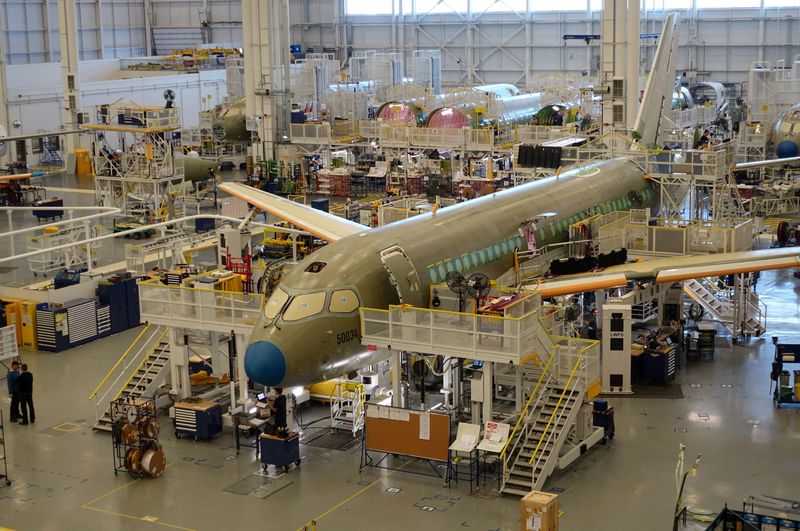By Allison Lampert
MONTREAL (Reuters) -Canadian Airbus A220 jet assembly workers approved a five-year contract with more than three-quarters of votes in favor, their union said late on Wednesday, ending fears of a lockout at the planemaker's Montreal-area plant.
The approval of the deal came after the company's estimated 1,300 Montreal-area A220 workers represented by the International Association of Machinists and Aerospace Workers union (IAM) had agreed to conciliation following the rejection of two earlier offers and a tentative agreement with union leaders that was declined by members.
The workers, whose last contract ended in December 2023, will get a 23% salary increase over five years, improvements in group insurance access, and an increase in evening premiums that would encourage work on later shifts.
The union had also tried to make gains on work-life balance, with some workers pressing unsuccessfully for a four-day week for afternoon shift employees.
The agreement averted a labor disruption that risked leading to delays in deliveries to airlines. A conciliator in the Quebec province's labor ministry had noted Airbus would "exercise its right to lockout on May 2" if a contract was not reached by that date.
The European planemaker's Canadian unit is trying to boost production and control costs on the loss-making narrowbody jet, which is smaller than the Airbus A320neo and Boeing (NYSE:BA) 737 MAX.
Airbus said the agreement would facilitate a better balance between shifts and the transfer of knowledge between more experienced employees who generally work day shifts and those who have less seniority and often work on later shifts.
"This condition is essential as the A220 production rate is ramping up," Airbus said in a statement.

Unions have recently capitalized on tight labor markets and high inflation to win hefty contracts at the bargaining table across North America, with airline pilots, autoworkers and others scoring big raises in 2023.
The Airbus talks in Canada were being watched closely by IAM leaders in Washington state, where Boeing's production workers want wage increases exceeding 40% over three to four years.